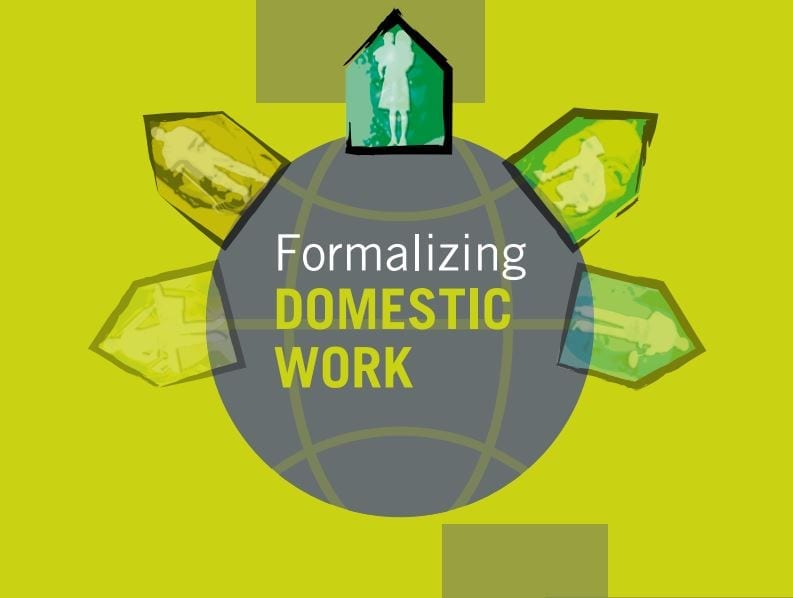
Formalizing Domestic Work
Formalizing Domestic Work
Click Here to Read Full Report
Nearly half the world’s workforce is engaged in the informal economy. In its Preamble, the
ILO Transition from the Informal to the Formal Economy Recommendation, 2015 (No. 204)
recognizes that the high incidence of the informal economy poses a major challenge for the
rights of workers, and has a negative impact on public revenues and governments’ scope of
action, among others. This is the first international labour standard to focus on the informal
economy in its entirety and diversity and to point clearly in the direction of transition to the
formal economy as the means for realizing decent work for all and for achieving inclusive
development. For these reasons, addressing the informal economy has become a significant
area of focus for countries around the world.
Recommendation No. 204, of universal relevance, acknowledges the broad diversity of
situations of informality including specific national contexts and priorities for the transition
to the formal economy and provides practical guidance to address these priorities. It clearly
defines a broad and detailed scope of application to all workers and economic units –
including enterprises, entrepreneurs and households – in the informal economy.
While informality and many of its causes affect sectors across national economies, informal
employment may be concentrated in particular sectors where sector-specific forms and
drivers. In this case, a sector-based approach may be more effective than a general approach.
Domestic work is one such sector: it is characterised by high incidence of informal arrangements
and contributes significantly to informality, especially among women. It is distinct from the
rest of the informal economy for three principal reasons: the employment relationship takes
place within the private sphere, the household; it can be blurred or disguised by social norms
and highly personalised contexts; and it falls outside the conventional regulatory frameworks
of many countries. In designing coherent and integrated strategies to facilitate the transition
from the informal to the formal economy, Recommendation No. 204 calls on Member States
to pay special attention to domestic workers, as one group that is especially vulnerable to the
most serious decent work deficits in the informal economy (para 7i).
Recommendation No. 204 provides thorough guidance to facilitate the transition from the
informal to the formal economy; yet, achieving the transition remains complex. This policy
paper aims to provide a framework for understanding and assessing informality in employment
relationships in the domestic work sector, and presents approaches to formalizing the sector.
It clarifies the various manifestations, indicators and drivers of informality and formality in the
sector. It presents strategies and instruments that have been implemented in different countries
in order to reduce informality and promote formalization in domestic work, based on available
information regarding national experiences and outcomes.1 Finally, it highlights emerging lessons. Recommendation No. 204 is built on a shared understanding and experience of ILO
constituents that transitions to the formal economy are best facilitated through the adoption
of integrated policy frameworks, which should include a broad range of approaches,
implemented through institutional coordination (para 11). Rather than cover the full
range of possible strategies, this policy paper will focus on a subset of these, namely, the
establishment of an appropriate legislative and regulatory framework, the promotion of
sectoral policies, the extension of social security coverage, and efficient and effective labour
inspections. It is clear that governments take into account factors much broader than those
covered in this report in order to assess the costs and benefits of particular approaches to
formalization. While these were taken into account in selecting country examples, the paper
does not engage in a discussion about the rationale and financing of particular formalization
strategies, but rather focuses on describing the approaches and highlighting the ways in
which they drive formalization.
The Recommendation also calls on Members to ensure coordination across different levels
of government and cooperation between the relevant bodies and authorities, such as tax
authorities, social security institutions, labour inspectorates, customs authorities, migration
bodies and employment services, among others, depending on national circumstances
(para 12). Such coordination mechanisms are covered in more depth in two existing ILO
publications on social security and labour inspections in domestic work, and so will not be
further elaborated in this paper.
